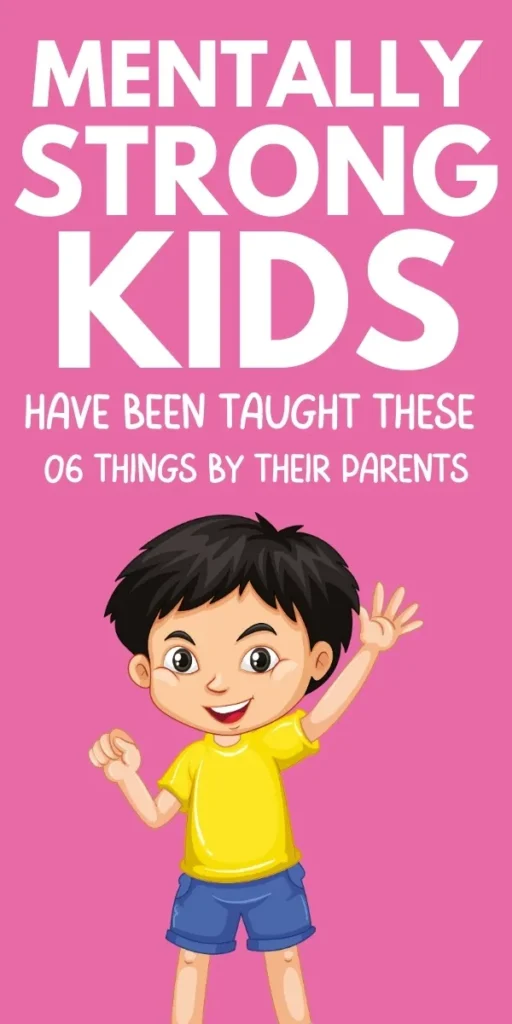Ever feel like your child’s a mystery? You drop them off at school with a kiss, but when they return, it’s like they’ve been on a secret adventure you weren’t invited to.
Their smiles and frowns don’t always tell the whole story. The good news is, unlocking their world doesn’t require a decoder ring – just a few key questions.
What Question Asked By Mentally Strong Children?
In this article you will find six daily questions (before & after school!) to spark conversation and five powerful question types to build trust, confidence, and a stronger emotional bond.
Questions To Ask Before School

The morning routine can be chaotic, but taking a few minutes to connect with your child sets the tone for their day.
Here are two questions to spark positive thinking and open communication:
- “What are you most excited about today?”
This upbeat question gets your child thinking about the positive possibilities of the day ahead. It could be anything from a fun activity in class to seeing a friend at recess.
Focusing on the positive helps them approach the day with an optimistic mindset.
- “Is there anything you’re feeling nervous about today?”
Opening the door to discuss anxieties allows your child to feel heard and supported. Maybe they have a big presentation or a challenging test.
When you acknowledge their nerves, you can help them develop coping mechanisms and problem-solving skills.
Questions To Ask After School

The end of the school day is a perfect opportunity to reconnect and learn about their experience. Here are four questions to delve deeper into their emotions, build trust, and foster open communication:
- “What was the best part of your day?”
This open-ended question encourages your child to share a positive highlight, big or small.
It could be a funny moment with friends, a game they won in gym class, or a new concept they learned. Celebrating their wins reinforces positive experiences and builds confidence.
- “What was the most challenging part of your day?”
Life throws curveballs, even for young children. This question allows them to express any frustrations or difficulties they faced.
Listen attentively without judgement, and offer support and guidance if needed.
- “Did anything make you feel sad or angry today?”
Validating their emotions is crucial for emotional intelligence. This question creates a safe space for them to discuss negative feelings without fear of reprimand.
Help them identify the source of their emotions and develop healthy ways to manage them.
- “Is there anything you’d like help with?”
Empowering your child to seek help fosters independence and builds trust in your relationship.
This question lets them know you’re always there for them, no matter the situation.
When you incorporate these questions into your daily routine, you’ll be nurturing a strong foundation for your child’s mental well-being.
5 types of questions to ask your child daily that help them open up to you
The six questions explored so far are a fantastic starting point. But for truly enriching conversations, consider incorporating these five types of questions into your daily interactions:
1. Open-Ended Questions:
These questions go beyond “yes” or “no” answers, encouraging your child to elaborate and share their thoughts and feelings.
For example, instead of asking “Did you have fun at school today?”, try “What was your favorite thing about school today?”.
Open-ended questions spark deeper conversations and give you valuable insights into your child’s world.
2. Feeling Focused Questions:
Helping your child identify and understand their emotions is key to emotional intelligence. Ask questions that prompt them to name and express their feelings.
For example, “It sounds like you’re feeling frustrated. Can you tell me more about what happened?”.
When you acknowledge and validate their emotions, you’re equipping them with tools to manage them effectively.
3. Strength-Based Questions:
Building confidence is crucial for a child’s mental well-being. Ask questions that highlight their strengths and accomplishments.
For example, “That sounds like a tough situation. What did you do that helped you handle it?”.
When you recognize their strengths, you’re fostering a sense of self-worth and encouraging them to believe in their capabilities.
4. Choice-Based Questions:

Empowering your child with choices gives them a sense of control and boosts their confidence. Offer options that are age-appropriate and relevant to the situation.
For example, “Would you like to pack your lunch yourself or do you need some help?”.
Even small choices give them ownership and a sense of responsibility.
5. Reflective Questions:
Helping your child process their experiences is a valuable skill. Ask questions that encourage them to reflect on situations and learn from them.
For example, “What could you do differently next time if you face a similar situation?”.
Reflective questions foster problem-solving skills and help them build resilience.

Conclusion
When you incorporate these five types of questions into your conversations, you’ll be nurturing a space for open communication, building trust, and strengthening your child’s mental well-being.